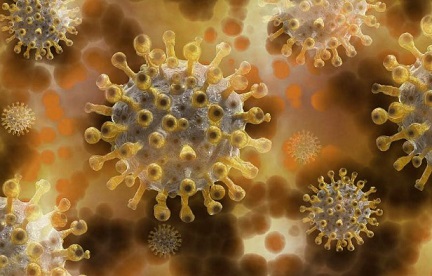Nikhil Prasad Fact checked by:Thailand Medical News Team Oct 11, 2024 1 year, 2 months, 3 weeks, 3 days, 15 hours, 52 minutes ago
Medical News: A new study has revealed that patients suffering from Post-COVID-19 Syndrome (PCS) show long-lasting metabolic disturbances, particularly in their ability to oxidize fat during physical exercise. This has significant implications for those experiencing fatigue, exercise intolerance, and other symptoms linked to PCS. Researchers from the Department of Rehabilitation Sciences at the University of Witten/Herdecke, Germany, and the DRV Clinic Königsfeld conducted this study to investigate these metabolic changes. This
Medical News report outlines the key findings and the importance of these metabolic insights in helping PCS patients regain normal function through rehabilitation.
 Study finds that Long COVID-19 patients exhibit impaired fat oxidation
Post-COVID-19 Syndrome and Its Symptoms
Study finds that Long COVID-19 patients exhibit impaired fat oxidation
Post-COVID-19 Syndrome and Its Symptoms
Post-COVID-19 Syndrome refers to a range of symptoms that persist long after a person has recovered from the acute phase of COVID-19 infection. Common symptoms include extreme fatigue, shortness of breath, cognitive difficulties, and reduced physical performance. While these symptoms affect a large percentage of people recovering from COVID-19, the mechanisms causing these prolonged effects remain unclear.
The study specifically focused on mitochondrial dysfunction, which has been increasingly recognized as a major player in the persistence of PCS symptoms. Mitochondria are the energy-producing parts of our cells, and when they function poorly, it can lead to a wide array of health issues, especially in how the body uses energy from fat stores during physical activity.
Study Methodology
The research team enrolled 145 PCS patients into a single-center prospective cohort study. Each participant underwent cardiopulmonary exercise testing (CPET), which measures how the body responds to exertion. By analyzing detailed breath-by-breath spirometric data, the researchers calculated how efficiently the patients were able to burn fat during exercise. Fat oxidation is an important indicator of mitochondrial capacity and overall metabolic health. This article highlights the significance of these findings, as reduced fat oxidation points directly to metabolic and mitochondrial dysfunction.
Patients were admitted to the study approximately 253 days after their initial COVID-19 infection. Most patients reported extreme fatigue (79.9%), difficulty with exercise (77%), and cognitive problems (55.1%). Importantly, the study also monitored the progress of these patients throughout their stay at the rehabilitation center, tracking any improvements.
Key Findings: Impaired Fat Oxidation in PCS Patients
The study uncovered several crucial findings related to fat oxidation and mitochondrial health in PCS patients:
-Significant Fat Oxidation Impairment: The researchers found that PCS patients had significantly impaired fat oxidation compared to healthy individuals. Fat oxidation refers to the body's ability to convert fat into energy, especially during exercise. The study'
;s results showed that PCS patients had an average fat oxidation capacity significantly lower than healthy controls (AUC: 11.3 compared to healthy subjects, p<0.0001).
-Impact of Hospitalization During Infection: The severity of this impairment was strongly linked to whether the patients had been hospitalized during their acute COVID-19 infection. Patients who had been hospitalized had lower fat oxidation rates compared to those who received ambulatory care. This finding suggests that more severe cases of acute COVID-19 may leave a lasting impact on the body’s metabolism.
-Age and Gender Differences: Interestingly, younger males showed a greater reduction in fat oxidation capacity compared to other groups. This trend was especially prevalent in younger males who were more likely to exhibit low fat oxidation rates (sex: p=0.002, age: p<0.001).
-High Fatigue Equals Lower Fat Oxidation: The study also revealed that patients with the highest fatigue scores, both mental and physical, had the most impaired fat oxidation rates. This suggests a direct link between fatigue and metabolic function.
-Exercise-Based Rehabilitation Shows Improvement: The most encouraging finding from the study was that exercise-based rehabilitation could significantly improve fat oxidation rates in PCS patients. After undergoing a rehabilitation program focused on improving cardiovascular fitness and endurance, patients showed a substantial increase in their fat oxidation capacity. On average, fat oxidation improved by 31.9%, and for the most severely affected younger males, the improvement was as high as 44.2%.
-Exercise-Based Rehabilitation as a Solution
The rehabilitation program implemented in the study consisted of a variety of physical exercises, including aerobic training, strength training, and endurance-building activities. Over the course of 4 weeks, patients took part in 12 exercise sessions per week. The results demonstrated that this type of intervention could significantly restore mitochondrial function and improve overall metabolic health, particularly in the group of younger males.
Importantly, while the study found that fat oxidation improved, carbohydrate oxidation remained stable, indicating that the mitochondrial dysfunction was specific to fat metabolism. This also suggests that PCS patients may benefit from tailored rehabilitation programs that focus on improving fat metabolism specifically, which could lead to better long-term outcomes.
Conclusion
The findings of this study shed light on the underlying metabolic issues faced by PCS patients. The reduced ability to oxidize fat during exercise indicates that mitochondrial dysfunction plays a central role in the prolonged symptoms of PCS. For younger males, the effects appear to be even more pronounced, making them a high-risk group for long-term metabolic disturbances.
However, the good news is that targeted rehabilitation programs can help to reverse some of these metabolic impairments. The improvements seen in fat oxidation after rehabilitation offer hope for PCS patients who struggle with fatigue, exercise intolerance, and other debilitating symptoms.
In light of these findings, the researchers recommend that clinical assessments of PCS patients should include detailed metabolic tests during exercise, which can help identify those who may benefit most from rehabilitation. For younger males in particular, exercise-based interventions could be a key step toward recovery.
The study findings were published in the peer reviewed journal: Clinical Nutrition.
https://www.sciencedirect.com/science/article/pii/S0261561424003686
For the latest Long COVID-19 News, keep on logging to Thailand
Medical News.
Read Also:
https://www.thailandmedical.news/news/philadelphia-study-validates-that-sars-cov-2-causes-mitochondrial-metabolic-and-epigenomic-reprogramming
https://www.thailandmedical.news/news/taurine-supplements-the-potential-game-changer-for-metabolic-syndrome
